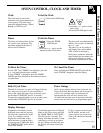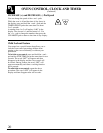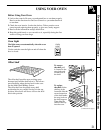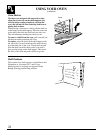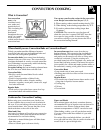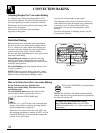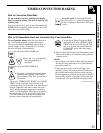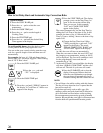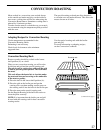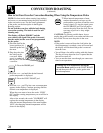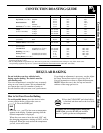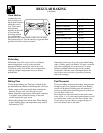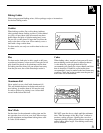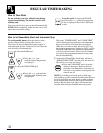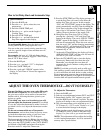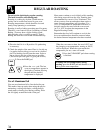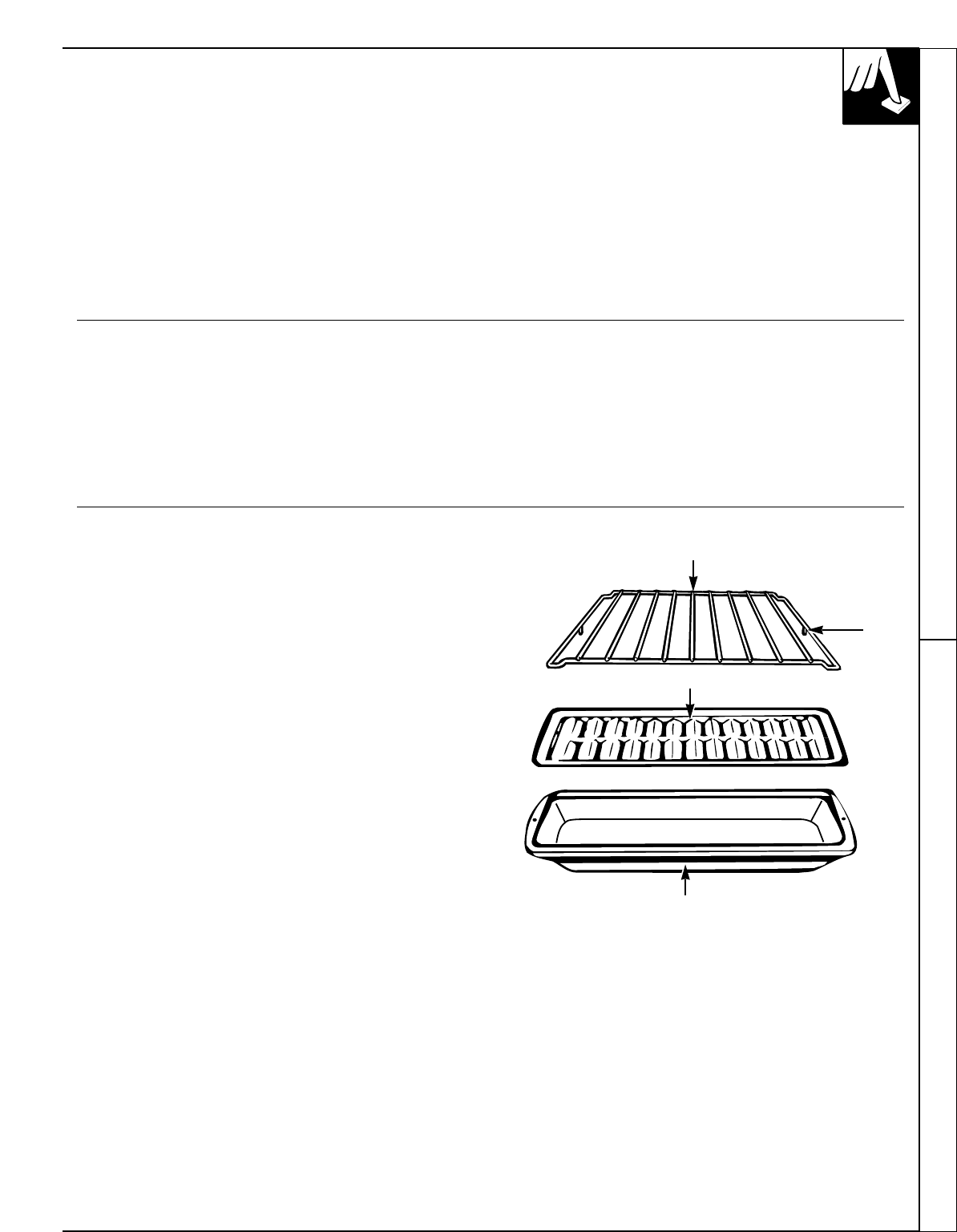
27
CONVECTION ROASTING
Meats cooked in a convection oven are dark brown
on the outside and tender and juicy on the inside. In
most cases, cooking time will be less when using the
Convection Roast feature. Sometimes cooking time is
reduced by 10 minutes per hour.
To make sure the meat is cooked the way you want it,
we recommend using the temperature probe provided
with the oven.
The special roasting rack and pan allow heated air
to circulate over and under the meat. This allows the
meat to brown on all sides.
Adapting Recipes for Convection Roasting
Use the temperature recommended in the
Convection Roasting Guide.
Preheating is not necessary.
Check foods for doneness at the minimum
suggested time.
Use the special roasting rack with the broiler
pan and grid.
For more information on adapting recipes,
see the Convection Cookbook.
Convection Roasting Rack
Roasts or poultry should be cooked on the lowest
shelf position (A) on a shelf.
When you are convection roasting you will use the
broiler pan and grid and the special roasting rack.
The pan is used to catch grease spills and the grid
is used to prevent grease spatters. The rack holds
the meat.
This rack allows the heated air to circulate under
the meat and increase browning on the underside
of the meat or poultry.
1. Place the shelf in the lowest shelf position (A).
2. Place the grid on the broiler pan and put the
roasting rack over them making sure the posts on
the roasting rack fit into the holes in the broiler pan.
3. Place the meat on the special roasting rack.
See the Regular Roasting with the Probe section to
insert the probe correctly.
NOTE: It is important that the broiler pan and grid
be used with the roasting rack for best convection
roasting results.
(continued next page)
Roasting rack
Post
Grid
Broiler pan
Timed Convection Baking Convection Roasting



